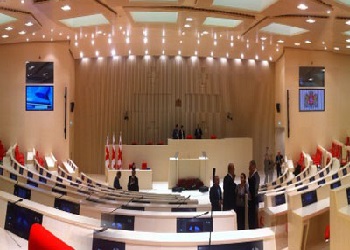- Details
since the outbreaks of the Asian financial crisis in the late 1900s and the global financial turmoil in 2007, assessing the strengths and weaknesses of a financial sector based on a set of financial indicators has become increasingly important. The assessment is needed mainly to identify any potential problems that may lead to vulnerability in the financial sector and cause a financial crisis. It is expected that by doing so a set of strategic policies and regulations, as well as actions, can be implemented to prevent the crisis.
Shortly after the Asian financial crisis in 1997 the Asian Development Bank (ADB) helped central banks of selected developing member countries to identify, compile, and analyze about 30 monetary and financial statistics and macroprudential indicators to identify potential problems in the financial sector to prevent another crisis. This was followed by an initiative on an early warning system, with a prototype developed to detect region-wide economic and financial vulnerabilities among members of the Association of Southeast Asian Nations, the People’s Republic of China, Japan, and the Republic of Korea.
- Details
The 2012 elections can be regarded as one of the most important events in the political life of Georgia. More so than at any time during the country’s 20-year history of independence, these elections were distinguished by a high level of uncertainty regarding the final results, and fierce competition between the ruling party and its major opponents. Therefore, unlike previous elections, greater importance was given to the accuracy and strength of the action plans and pre-election programs presented by the parties. As a result, the majority of the political parties that qualified to participate managed to present competent and consistent programs that were more feasible and of a better quality than in previous elections. However, the competency with which the election programs were produced was not absolute, since a major problem with the presented programs was their consistency and the likelihood that their election promises could and would be delivered. At the same time, this is not to say that the 2012 October elections were not distinguished by a significant increase in the quality of the programs presented by the political parties compared to previous elections.
- Details
The purpose of this report is to present the Financial Soundness Indicators (FSI) data in a way that is accessible and easy to interpret by a wide array of stakeholders, and help them analyze the economic implications underlying the FSI concepts. The report presents a “birds eye view” of Georgia’s financial system and its’ standing relative to other countries in the world and the developing countries in Europe/Central Asia. Additionally, the report analyzes the potential banking sector weaknesses, which if unchecked could stun growth and undermine further financial deepening.
The report presents the analysis of investment climate, which highlights the lack of experience in the line of business, lack of qualified management and personnel, and issues with financial literacy of the bank clients as some of the main obstacles to securing bank credit. High leverage ratios among the qualified borrowers appear to be one of the obstacles to securing credit as well. The report points to the lack of developed capital markets and lack of alternative ways to finance capital as one of the primary reasons behind high leverage ratios.












